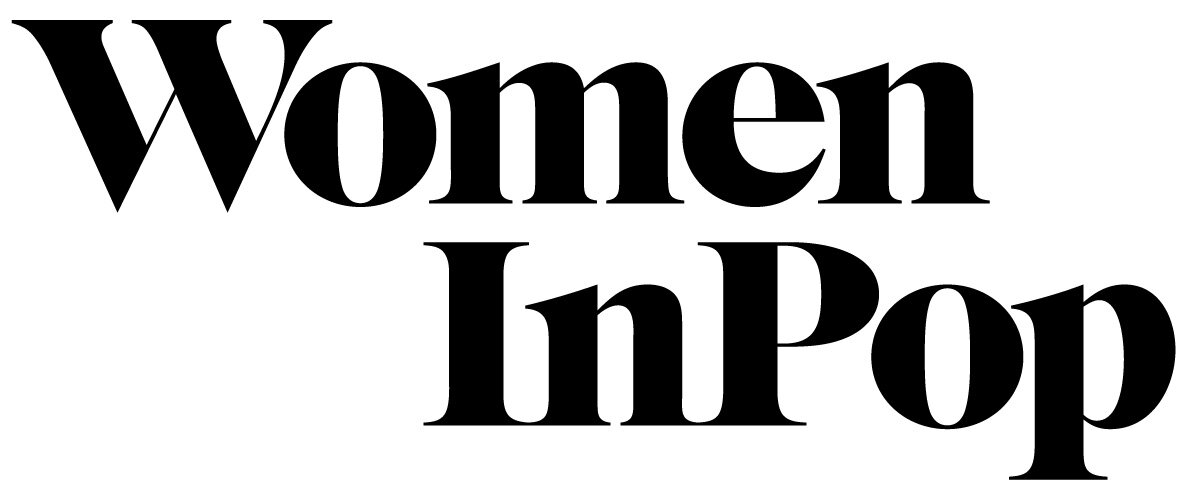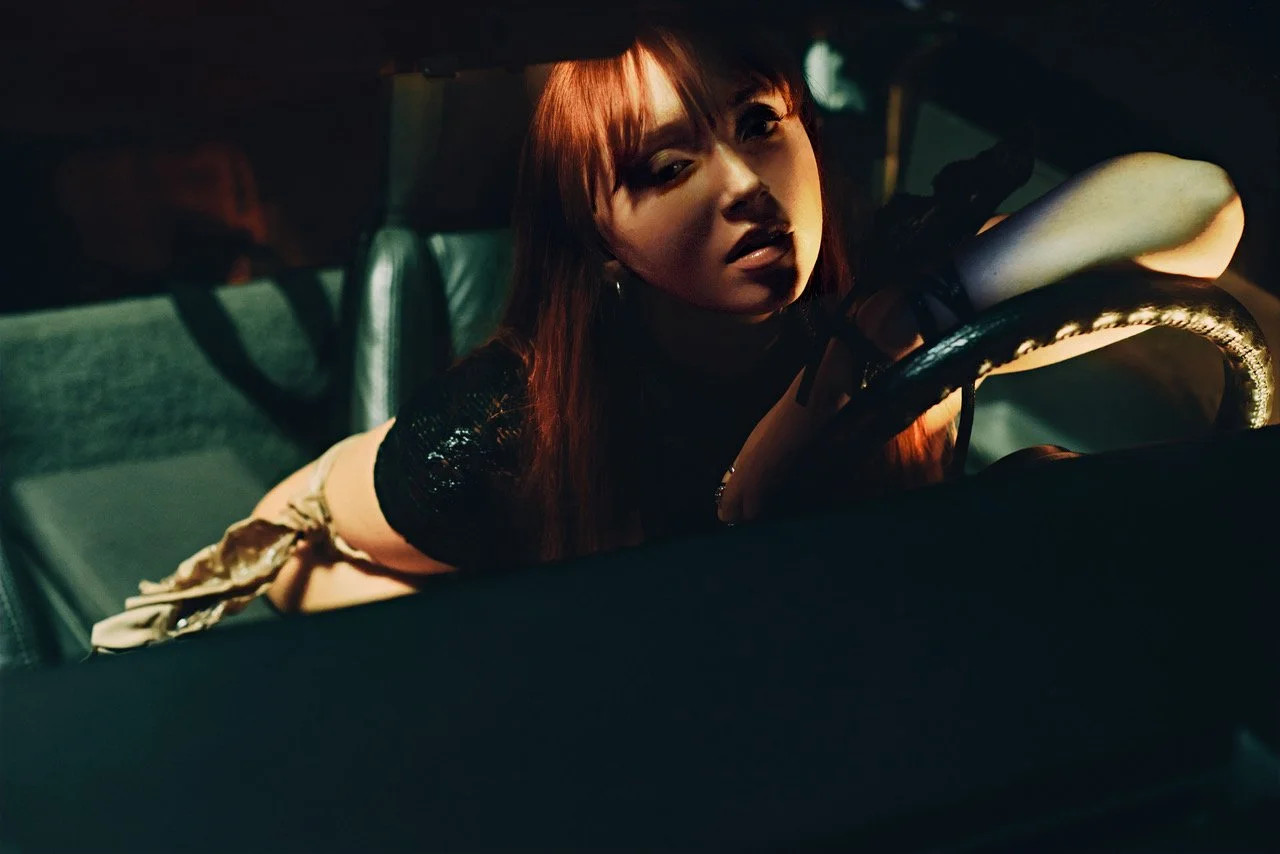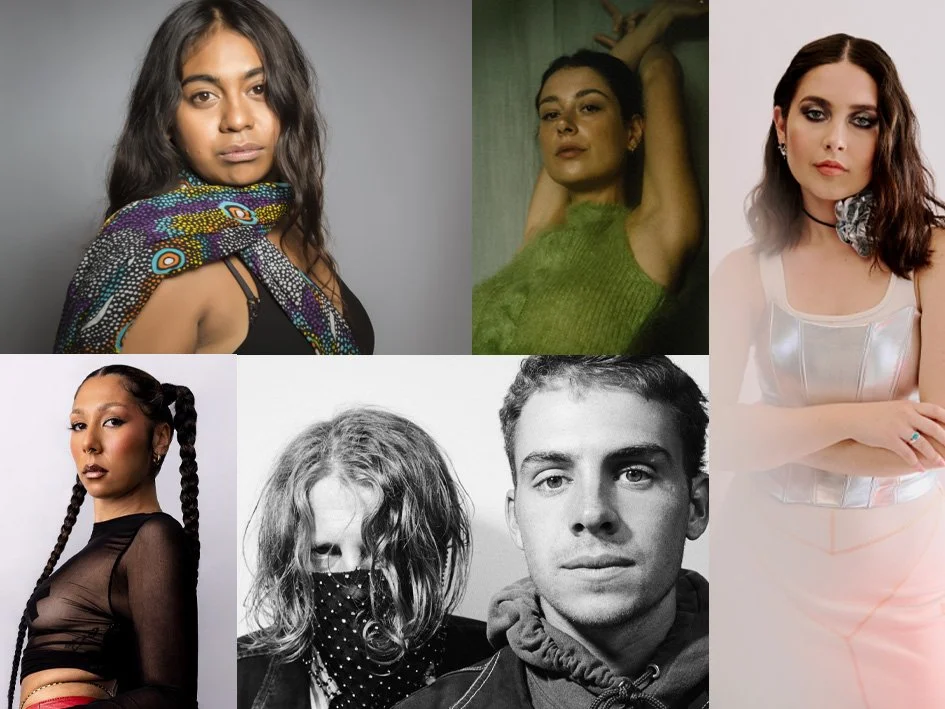APRA AMCOS launches 2025 23% Mentorship program for female and gender diverse artists
Published: 23 April 2025
Mentees words and interviews: Georgia Ginnivan
Image: Selection of 2024 mentors with mentees, courtesy APRA AMCOS. Top L-R: Lauren Vale and Danielle Blakey, Ruby Archer and Mark Lizotte, Jules McGruther and Tim Blunt (FVNERAL). Bottom L-R: Allegra Neve and Rachel Kelly, Natasha Newling (RAYHAB) and Milly Petriella, Yve Blake and Sheanna Russon, Rich Pike and Victoria Pham.
This article was written in collaboration with APRA AMCOS
APRA AMCOS, the organisation that distributes royalties to Australian and New Zealand creators whenever their music is played domestically or internationally, today launch their seventh annual 23% Mentorship program which provides support to emerging and established women and gender diverse APRA AMCOS members.
The 23% program was the result of a 2017 report that showed women and gender-diverse music creators faced substantial career barriers including being less likely to make a sustainable career from their craft, less likely to be given fair opportunities, despite being more educated, and less likely to win professional accolades.
The name 23% is a reference to the percentage of APRA AMCOS members who identified as women or gender diverse when the program first launched in 2018 and it seeks to combat the challenges they face by providing professional guidance and funding directly to successful applicants. Fourteen successful applicants from all musical genres and practices will receive a three month mentorship from industry professionals, including six meetings and $3,000 to cover any expenses.
The mentees will receive support from some of the Australian music industry’s most respected names, with artists such as KLP, Ngaiire, Gretta Ray, Megan Washington, Isabella Manfredi, Ella Hooper performing as mentors in the past. Previous mentees have included Telenova’s Angeline Armstrong, Annie Hamilton, BVT, CLEWS, dameeeela, Eliza Hull, Issy Grist (GRID), Body Type’s Sophie McComish and Victoria Pham.
“We acknowledge that the representation of women and gender diverse creators in the industry is woefully inadequate, and we need to do more to grow that participation and our membership to way above the 23% mark,” Karen Don, Head of Membership at APRA AMCOS says. "We are committed to implementing the 40/40/20 recommendation from the Raising Their Voices report across all of our programs and hope that mentorships like 23% are just one small step in the right direction to achieve gender parity in our industry through an investment in talent, career guidance, network building, pairing mentors and mentees in a meaningful way to create lasting relationships and more sustainable careers in music.”
Applications open today at apraamcos.com.au/mentorship and close on Saturday 10 May at 5pm AEST. The mentorship program is open to all Australian APRA AMCOS members.
As this year’s program opens, we spoke to some of last years mentees to find just how impactful the 23% program has been for the career and their art.
1. “I felt supported, championed and guided”
We know it’s not easy to navigate the music industry. Trans theatre maker Sheanna Russon (mentored by FANGIRLS’ Yve Blake) found the mentorship gave her encouragement and validation that she was on the right path:
“The 23% mentorship was an absolute game changer for my career. Having a mentor with experience and knowledge investing in me was invaluable. I felt supported, championed and guided not just for the duration of the mentorship, but I was given a plan to take forward into the future. Having an industry leader…who treated me as a peer fostered so much confidence in my craft.”
Body Type singer and guitarist Sophie McComish had a similar experience with songwriter Nat Dunn. “The [23% Mentorship] made me feel like what I'm doing is worth it and maybe actually making a difference. It was also so helpful on a practical level to have someone to bounce questions off in a safe, casual setting.”
2. Your mentor can relate
Very often, your mentor will be able to empathise with your experiences in the music industry.
Again, from Sophie McComish: “In spite of [mentor Nat Dunn] being very established, she could totally relate to the struggles that I spoke of regarding my experience as a woman making music in an industry full of men…it was reassuring to hear about how she came out on top.”
3. Extend yourself, try new things
Composer Victoria Pham’s mentorship gave her a “safe space to experiment, try new ideas and develop new skills both in business and technical areas. It was a sounding board for my concepts – bizarre, experimental and yet to be refined. I got to explore new techniques, tools, and methodologies.”
3. A big dose of accountability
Similarly, the mentorship gives you accountability to reach for your goals. The best part – you’re in the driver’s seat.
Electronic artist Issy Grist (GRID) says of her mentorship with KLP: “The advice from Kristy was that no one else was going to do this for me - if I want to be an artist, I need to work very very hard, and make things happen for myself…It was definitely what I needed to hear to get out of my head and start being the artist I want to be! It was actually great getting homework and being held accountable for some of this planning - it made me really get onto it!”
Our advice – if you’re considering applying, be as specific as possible about your goals and why the mentorship is perfect for you right now. Similarly, set action items and tasks for your meetings, to make the most of the opportunity.
From CLEWS’ Lily Richardson, speaking about her mentorship with SXSW Sydney’s Head of Music and Bossy Founder/ Director Claire Collins: “I knew Claire was being generous with her time so I brought specific questions to our meetings and it made me feel laser-focused.”
4. “Work backwards from tangible goals” – the importance of structure
How do you forge your musical career? Structure is important – all the little decisions and actions determine where you end up.
From Sheanna Russon: “I have come out of this mentorship with long term structure, articulation of craft and clear idea of what I need to do to achieve the career I want. There is freedom to create your own path. This mentorship taught me to be unapologetically you. Knowing what your project is and how to talk about it, and how to sustainably work on something over time.”
Lily Richardson echoes that: “Speaking through release timelines and setting tangible release goals was surprisingly simple.. Claire made me feel empowered to put together release strategies myself. A huge takeaway was thinking about what we want a release to do or achieve, and working backwards from tangible goals instead of just thinking we want a release to ‘do well’ and collecting metrics after the fact.”
““The [23% Mentorship] made me feel like what I’m doing is worth it and maybe actually making a difference. ”
5. MONEY MONEY MONEY
Let’s not forget – mentees receive $3,000 to cover any work-related and/or travel expenses during the mentorship. “It’s necessary financial support to continue crafting,” says Victoria Pham.
6. Tangible career growth
The mentorship can give that extra push to make a project a reality. “With my mentor and the mentorships help I have been able to record a set of high quality demos, created a proofed pitch document and am in the process of seeking development opportunities to take this work to the next level,” Sheanna Russon says of her musical Afterglow.
Sophie McComish also took a mentorship project to the next level. “About to fly to LA to record the album that I was working on during my mentorship - watch this space!” she revealed at the end of her time on the program.
Want to apply for the 23% Mentorship? Applications are open now! To find out more, head to apraamcos.com.au/mentorship







